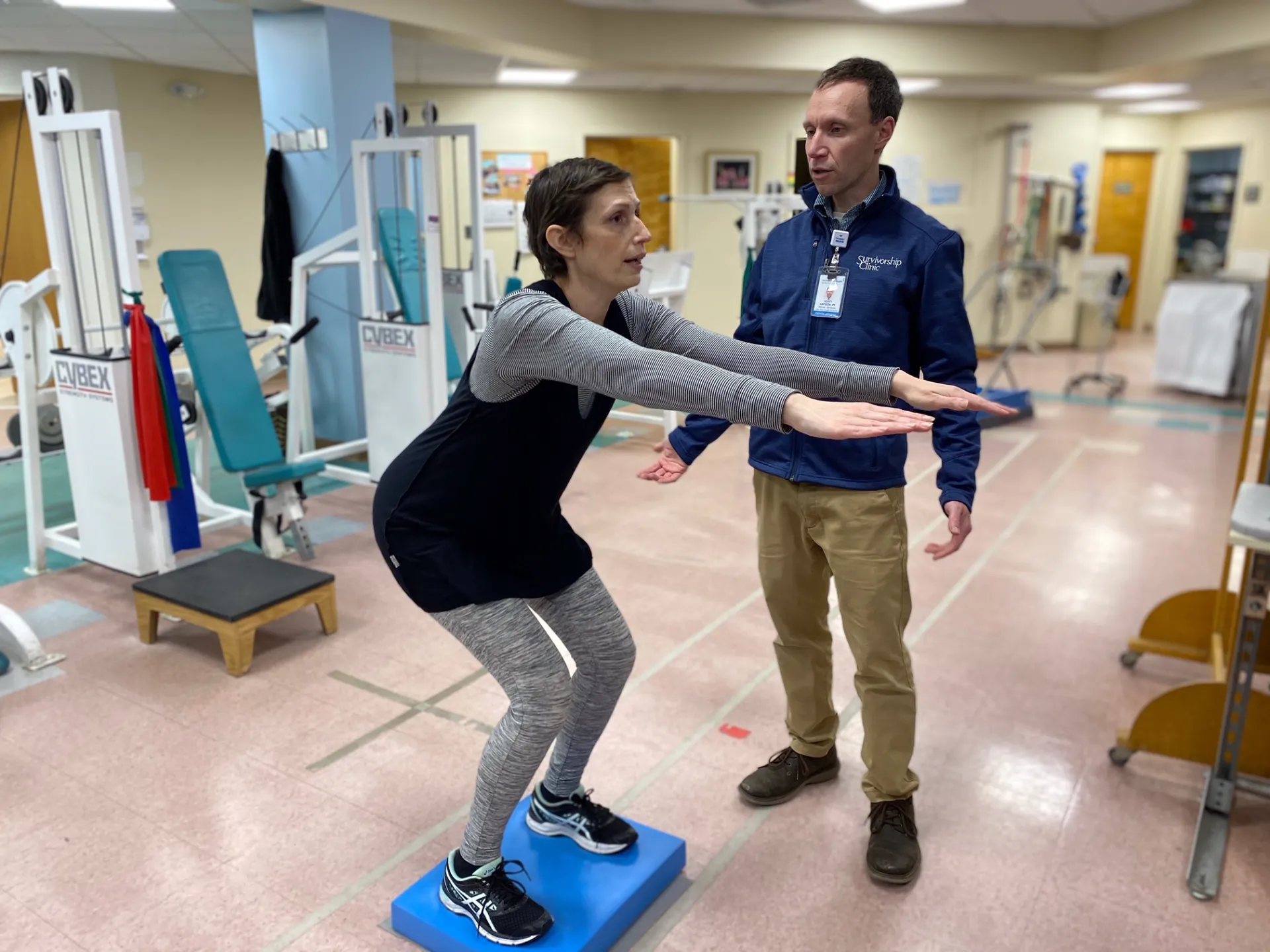Since Capozza is based in Connecticut, so close to New York City, his ability to see cancer patients has been affected by the coronavirus pandemic. He had to cancel all appointments with his patients (due to government restrictions), because they were immune compromised and preliminary data showed that cancer survivors are 3.5 times more likely to die from COVID-19 complications.
“As much as I wanted to still work with my patients, and as much as they wanted to come in, it was the right move,” he said.
He has been connecting with patients by phone, updating their exercise programs and giving them as much moral support as he can. They are working to institute video telehealth, so he can see his patients and better assess their mobility concerns, making adjustments as needed in real time.
Meanwhile, he has been working in an in-patient setting at St. Raphael’s, another hospital within the Yale New Haven Health system. Yale’s Smilow Cancer Hospital moved three floors of cancer patients to St. Raphael’s because Smilow has negative pressure rooms to better control the spread of the virus. Now he sees oncology patients immediately after surgery as well as those who have been hospitalized to receive chemotherapy, as none of the rehab staff there have experience treating oncology patients.
“For me, it's been a steep learning curve as I haven't treated patients in the inpatient setting in 20 years, but we're working together to so that we can provide quality care for these patients in this uncertain time,” he said.
Capozza will give a rehab lecture to students in IC’s doctorate of physical therapy students virtually in May.
